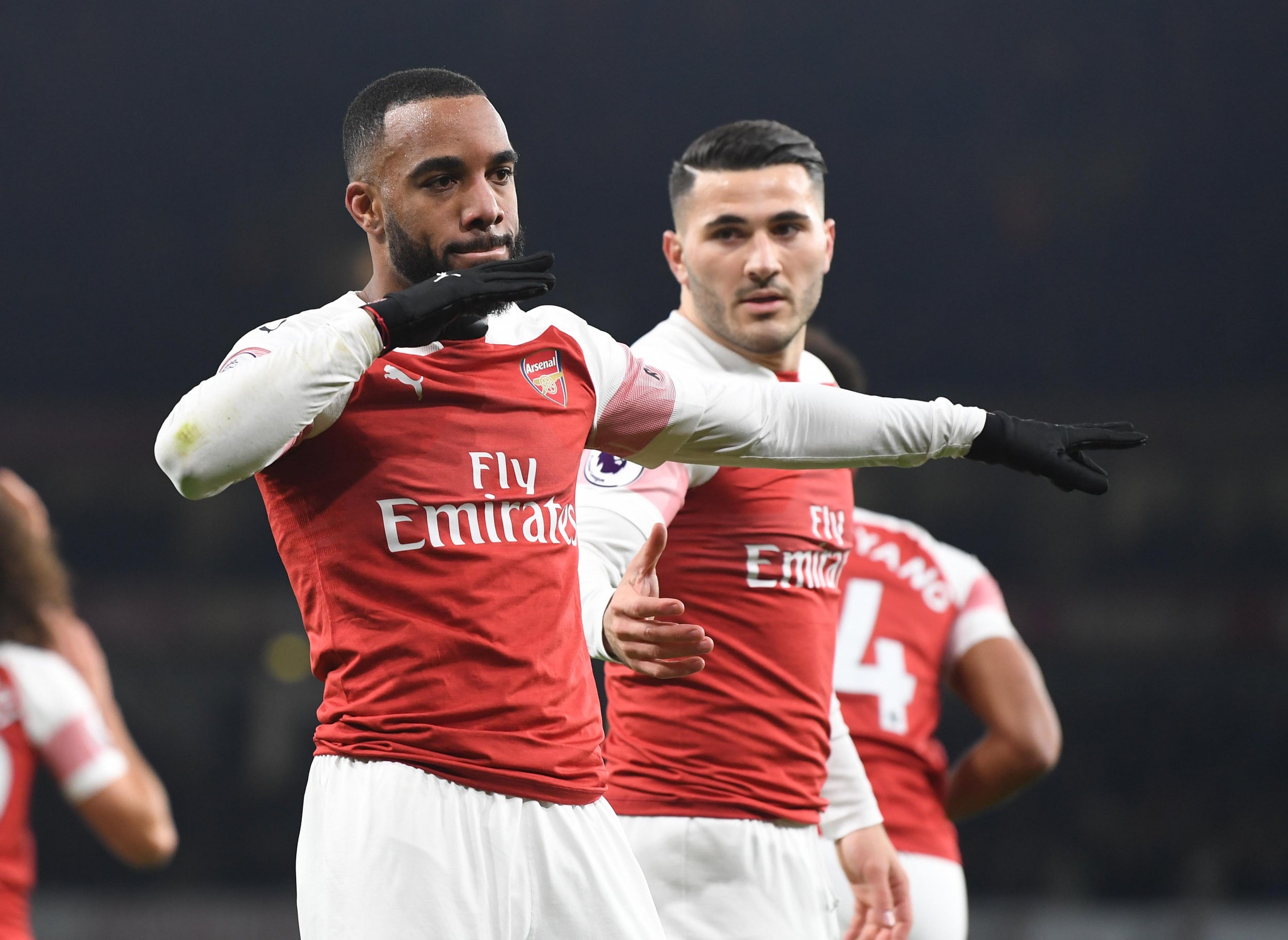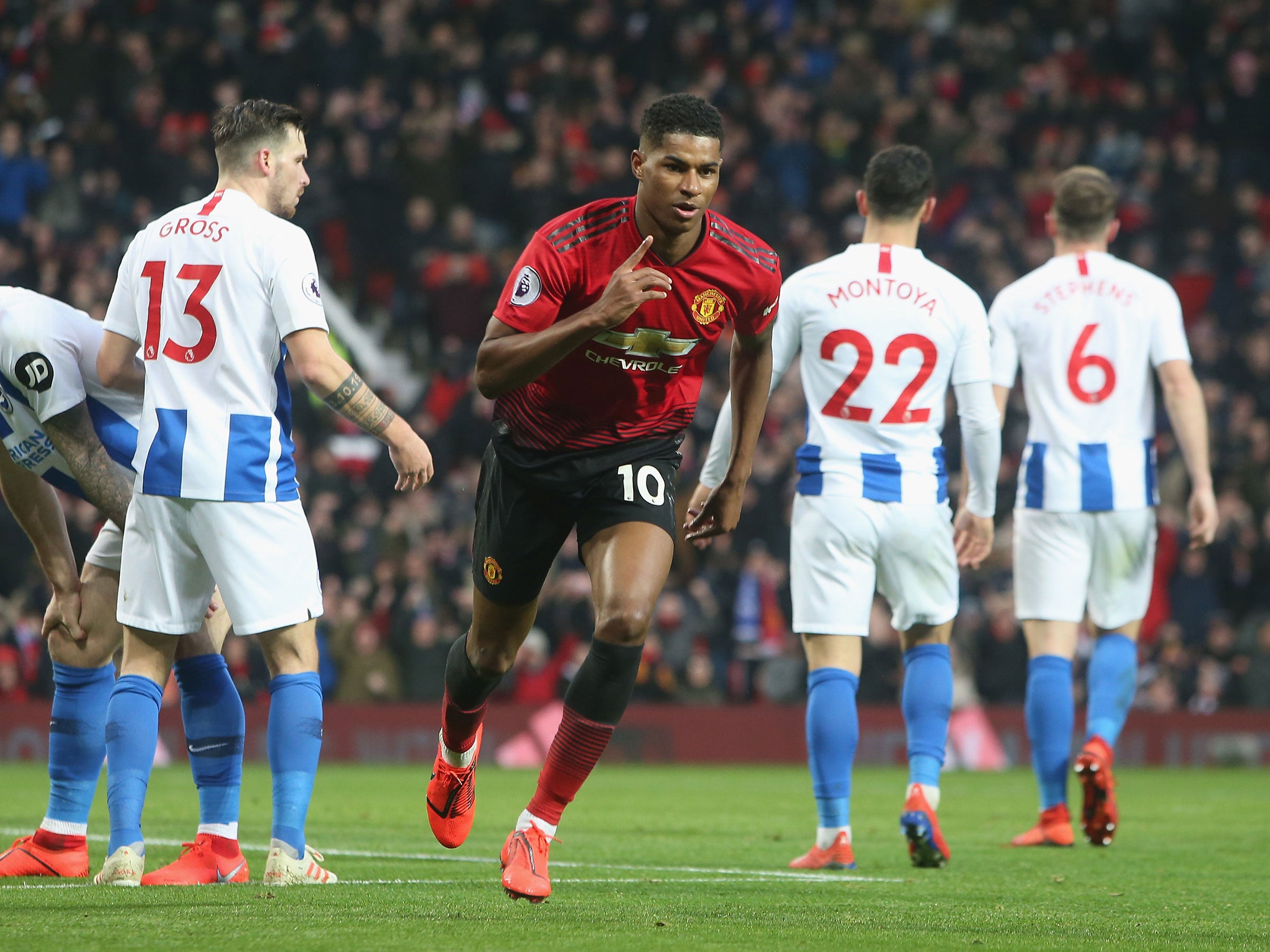Arsenal vs Manchester United: Gunners and United meet on opposite sides of an identity crisis
The Gunners have severed almost all links to their past under Unai Emery while Ole Gunnar Solskjaer's appointment has seen United return to theirs
When Ole Gunnar Solskjaer took over as Manchester United manager, the first job he set himself was to appeal to United fans’ sense of nostalgia. He wanted to give the crowd something to remind them of better days, and the football that United used to play 10 or 20 or 25 years ago. He wanted to re-institute a style of play that “reminds us of Sir Alex Ferguson’s teams, reminds us of the successful times”, he said early on in his tenure.
Seven games into his time in charge Solskjaer has done exactly that. The run of straight wins certainly help, but they are a by-product, a side effect, of this greater goal: reuniting the club with its sense of identity. Attacking football. Young players. A sense of adventure. Risking losing in order to win. Putting five past Cardiff, three past Huddersfield and four past Bournemouth represented the type of performance that Old Trafford had not seen in years. Beating Tottenham at Wembley, through the rejuvenated Marcus Rashford, was even more encouraging.
No-one represents that sense of identity better than the ‘Class of ‘92’, and to hear them speak is to hear an endorsement of Solskjaer’s work in rebuilding that connection with the past. "Since Ole has come back you feel like you've got your club back," Paul Scholes said this week. “It just feels like you've got someone there who knows Man United. You look at Ole, and he's a United man.”
On Friday night Solskjaer has his next big test, Arsenal away in the FA Cup fourth round. The Premier League will obviously be beyond United this season, they are 16 points behind Liverpool with 15 games left. They are still in the Champions League, although are no-one’s favourites to win it. But the FA Cup, along with a top four finish, is a realistic target. Winning the cup at Wembley would make sense of this strange six-month spell at United, if that is all it is.
Arsenal must look at United’s example with some curiosity going into this game. Because they are a club battling with similar problems, although they have not been fighting them for so long. They have lost a legendary manager. They have not won the title in years, a 15-year drought to United’s six. They have been left behind by Liverpool and Manchester City in recent years. And, most importantly of all, they have lost their sense of identity.
To watch Arsenal this season, trying to find their way under Unai Emery, is to watch a team with no real idea of what it wants to be. Emery has chopped and changed all year between a back three and a back four. He does not know what role he wants, if any, for Mesut Ozil, by a distance his best paid and most powerful player. Boardroom turmoil has only worsened the lack of direction or purpose at the club.
When Emery was unveiled last summer he promised pressing and possession and his team being the protagonists. But their best result under him, beating Chelsea 2-0 at the Emirates last Saturday, was won with 36% possession.
Yes we are only half a season into the Emery era but that is usually long enough for managers to put their stamp on teams after arriving. Six months into Pep Guardiola’s Manchester City tenure he had the players passing his way, even though the squad was still old and tired. Six months into Mauricio Pochettino’s time at Tottenham he had already realised which players were with him and which were not, and plucked the bad apples out from the barrel. Six months into Antonio Conte’s first season at Chelsea they were well on the way to a title. Six months into Emery’s Arsenal, his ideal endpoint has not yet been revealed.

Of the Premier League’s big six clubs, only Chelsea are in as much of an identity crisis as Arsenal. There, a manager has been brought in with a way of playing that is alien to the traditions of the club and its players. The complaint you hear from Chelsea fans is that they are too much like Arsenal, with all their passing patterns and defensive softness. It makes you wonder whether Maurizio Sarri might have been a better fit at the Emirates instead.
But in an era when the biggest clubs are increasingly fixated on their global reach, and less attached to their locality than ever before, playing identity does matter. The era of generation-spanning managers like Ferguson and Arsene Wenger may be over, but fans still want a recognisable ethos in how their team plays from one year to the next. One because that is the best way to win things - look at City last season, or Liverpool this year - but also because it gives something to build around.

These claims about identity are almost always inherently nostalgic. Fans love to look back into the past, find an old set of standards or values and then rebuild the present around it. You might look down your nose at that as a methodology, but the Solskjaer era so far is a testament to the power of memories, of himself and the teams that he played in. By putting him in charge, United have solved their identity crisis, at least for now. And plenty at Arsenal might wonder whether they missed a trick this summer, going for Emery rather than an ex-player who knew the club, severing any links they had with the past.
Join our commenting forum
Join thought-provoking conversations, follow other Independent readers and see their replies
Comments